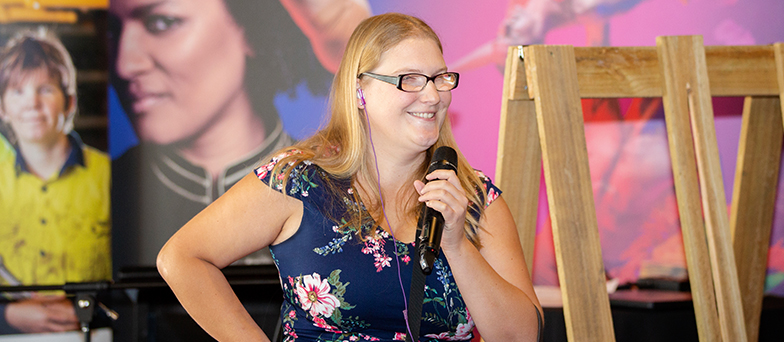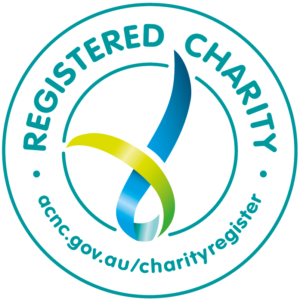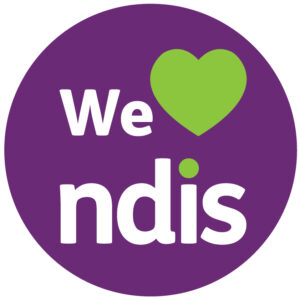Start Up works with young adults living with an intellectual disability as they explore the possibility of self-employment through developing their own microbusiness.
Beth Innes, Grants Coordinator at Challenge Community Services, designed and secured government funding for the 18-month program, which has been running for close to six months.
Beth explains the program came about because people with an intellectual disability were struggling to secure meaningful employment – work that gave them the opportunity for both community and economic participation.
“Finding work in an area of interest is particularly difficult for people with an intellectual disability, and self-employment is one way to address that,” Beth says.
“A lived experience of having a disability also gives you ideas that other people don’t see.”
Delivered by and for people with disability
This peer-to-peer model allows unique perspectives to flourish, as participants find genuine empathy in those who are sharing their journeys, and enables them to work with true role models.
“The Start Up mentors encourage participants to be proud of the skills, talents and experiences they have because of living life with a disability, and to bring this pride and awareness to their business venture,” says Program Coordinator Katie Butler.
She adds that the program is designed to cover “basically every aspect of starting a business, from the initial idea to launch and ongoing sustainability”.
Start Up first focuses on developing a business idea, then moves on to learning about rights and responsibilities, marketing and promotion, networking, day-to-day business management and the ins and outs of self-employment.
Jonathan Bridge says he has struggled to find job and training opportunities that suit his skills and interests but has an idea that would allow him to work in his dream field.
“I’m a wannabe game developer,” he says. “I’ve tried, but me and courses don’t get along nicely.”
After playing a table-top game with friends of differing intellectual abilities, Jonathan came up with a plan to run an accessible table-top gaming group. He is busy working out how he can modify games to be more inclusive – for example, projecting the games onto large screens, so they are more accessible for people with low vision to participate in.
“There is value to the connection and community it provides,” he says.
Jonathan is hopeful his idea will soon become a reality, and in particular that participants will include the activity in their NDIS plans.
Community pitching is an integral step
Participants are already exhibiting significant improvements in confidence, self-belief and the development of their validated business ideas.
In a special event on Tuesday, 30 April, Start Up participants presented their first pitch at the Civic Theatre Bar to local businesspeople, council staff and academics.
They showcased a diversity of skill sets, with business ideas ranging from photography to video editing, pet care, woodwork and gaming – to name a few.
Start Up participant Amparo Morgan has been developing a pet care idea with her mentor Melanie Schlaeger, a local disability advocate.
“She’s just a good person to talk to,” Amparo says. “I’m a bit shy. Public speaking is not really my thing. Everybody’s been coming up to me saying how well I did – that made me feel a lot better.”
All Start Up participants will continue to develop their business ideas with their mentors, as the program progresses over the next twelve months to hopefully end with self-employment.
Media Coverage:
Newcastle Herald Article
Find out more about the services Challenge offers or get job-ready with school leavers support program (SLES).
First, we find out what your employment goals are. What type of job are you looking for? Do you need to do further study to achieve your work goals?
We will then work out a program that’s just right for you. This could include group activities, such as putting together your resume, or individual tasks like work experience or preparing for your interview.















